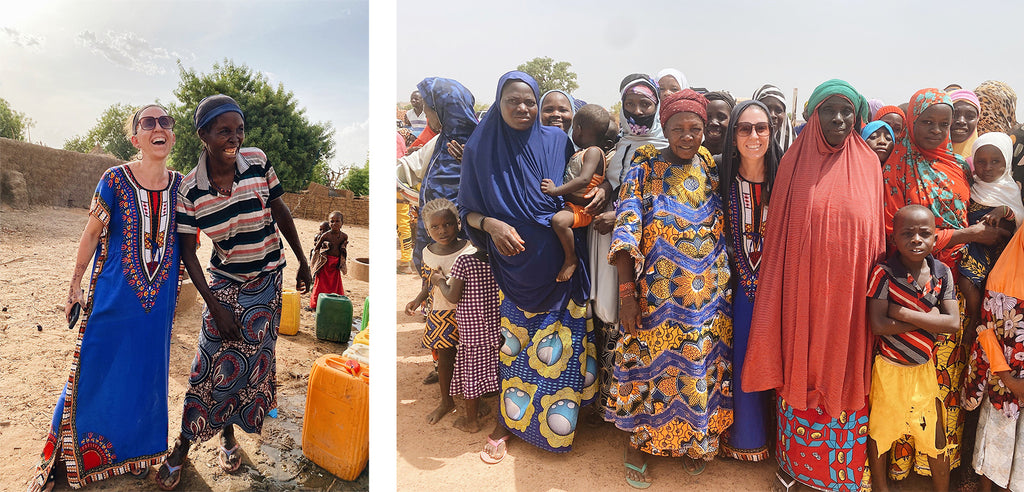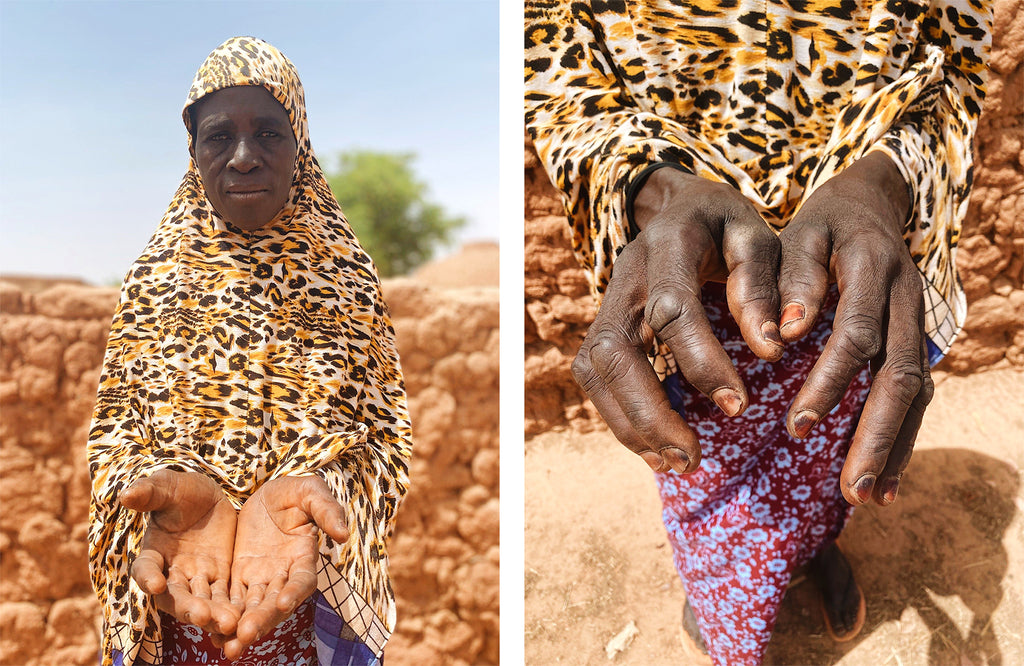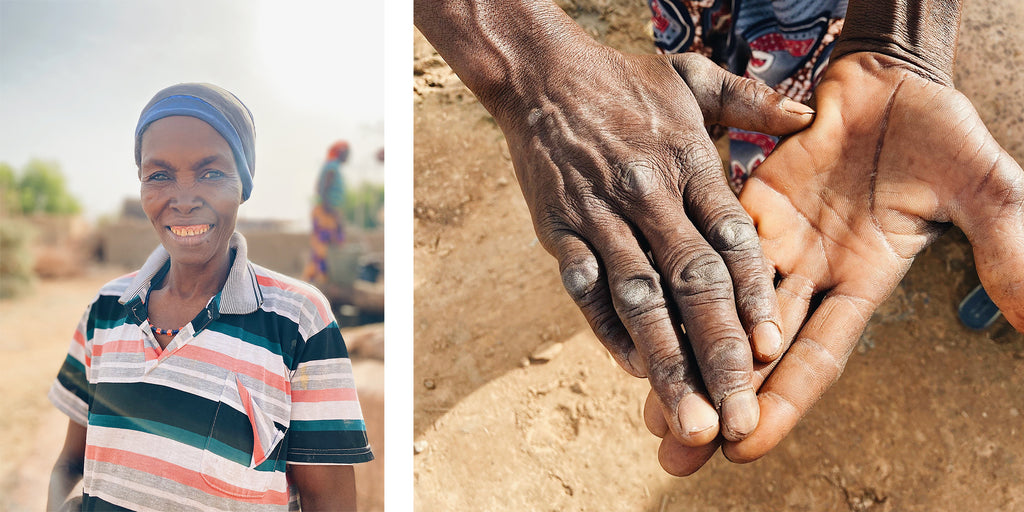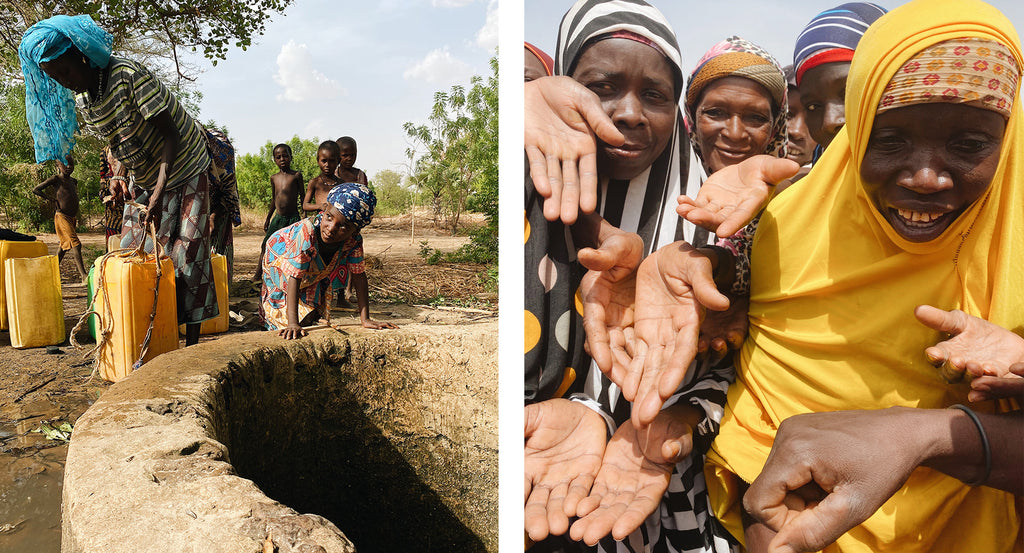Several weeks ago, I fell and broke my left wrist. Recently, I got the cast off and found my arm had the remains of henna designs from a friend while I was in Niger.
I’ve had henna drawn on my hands several times—from living in the Middle East to India to weddings in Sudan. I admire how these women have patterns and designs in their minds and can squeeze the mud out of a little plastic bag so perfectly. I asked some local guys if they thought it made women more beautiful to have henna on their hands. They looked at me blankly and responded, “Uh… sure,” which led me to conclude they don’t notice it much.
But women do.
I’ve been thinking about hands and nails a lot after showing up with Samira’s beautiful henna designs on my hands while in a remote village in Niger.

neverthirst just expanded to Niger (read more about that here!), and I was visiting one of the first communities we’re working with to serve clean water.
When I’m traveling, I like to talk with the ladies about water and hang out with them. The women are amazing. They’re stronger than I could ever hope to be, and they’re funny and kind and resilient.
We were talking about how the new water point would change their lives, and the women started showing me their hands—each had gnarled and bumpy fingers with thick calluses, making their thumbs and joints extra knobby. They called out women who had the largest callouses to come show me. Some were embarrassed.

“Our hands look bad because we throw buckets down into the open wells to get water. Then we pull the heavy water buckets back up by the ropes. We do this so much that our hands develop these callouses,” one woman told me.
These ladies hadn’t decorated their hands with henna. Some didn’t want to show them off. Most were twisting them in their robes and kind of shy-laughing as we chatted.
I felt a bit embarrassed by my own hands. I often talk with my hands. I wave them around, using them to describe things. But now I felt like twisting mine in my long dress, ashamed of my dainty princess fingers and the easy life I live in comparison.
As these ladies showed me their hands, I thought of the time they spend pulling up water for their families, serving their children, husbands, and relatives living with them. I thought of their animals, as they worked to provide their livelihood. These women have nothing to be ashamed of and much to be proud of.

So, after another woman, Aisha,* showed me her hands, I held her hands in mine and told her that her hands were beautiful. More than that, I know her hands show her love for her family. They show her strength and perseverance in hardship. Her sacrifice for people she loves.
I told her God sees her efforts and He loves her. She smiled at me, still embarrassed.
As believers, we know God wants the body of Christ to go out and serve others. You know what really says “God values you and cares about your suffering” even better than French translated into a local language? A new water system with tap stands and a water tank that provides a jerry can full of water in less than a minute with no wear and tear on hands, no dead animals and bugs having to be fished out at the top, and no danger of children falling in.

The open, contaminated well where women throw their jerry cans below, and pull them up by hand. Every day.
We are His hands and His feet. We serve the least of these in His name. We can’t multiply loaves and fish, but we can use our resources to provide for those who don’t have them in the name of Jesus. It’s such a blessing to us when we get to be a part of an answer to prayer.
I invite you to help bring clean and living water to the women in Niger—and the communities in every country where we serve. Your giving brings health, dignity, and a platform for the gospel by meeting the simple need of clean water.
Donate today or learn more here.
*Names changed for security reasons.
